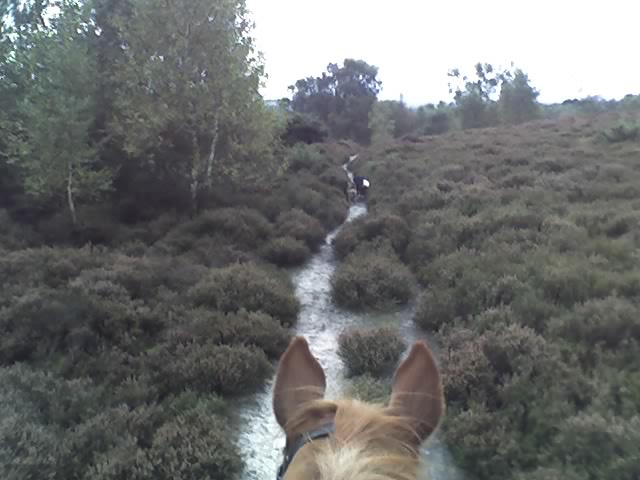The Battle for Broxhead Common

Broxhead Common
The Case for Hampshire County Council – PART 116
- The objections to my claims for bridleways, made to ameliorate the loss of 23 tracks used by horse riders before the unlawful fencing obstructed most of them, came from the same three sources. They were the purported landowner, English Nature, with Hampshire County Council concurring to the Regulatory Committee, where the decision to support it or not would be made. It felt like a brick wall.
- 18th January 2005 the first of the objections came, as you might expect, from the purported landowner. It would have been amusing if it had not been so irrational because it is stressing the importance of the common as an SSSI. It says: “… and is vitally important to wildlife and contains habitats and features that cannot be recreated, it is in unfavourable condition and declining.” This is the same person that has repeatedly objected to the registration of Broxhead as common land and has refused to seek the assent of the Secretary of State for the unlawful fencing. It continues:
“But I strongly object to the notion that this narrow corridor of Hampshire be subjected to any further heavy equine traffic just to satisfy the whims of a handful of local jockeys. Indeed, English Nature objected to proposals for new bridleways back in 1999, I feel confident that their views will not have changed on the basis that this proposal is in direct conflict with the management principles for conservation of this SSSI.” So, the heavy equine traffic is composed of a handful of local jockeys!?
2005 Objection letter from Whitfield05022021 - 20th December 2005 brought a short, sharp repeat from the same source.
2005 Objection letters from Whitfield05022021 - The conflict of interest between the conservationists and access interests had arisen because the registration provisions of the Commons Registration Act 1965 and the Commons Act 2006 had been drafted without reference to the particular requirements of environmental management. (Rodgers).
- Of interest also, is that the “legal characterisation of the land use permitted by a common property right will also impact upon the utility of Agri-environment schemes as a tool for promoting the environmental management of common land. Measures under the EC Rural Development Policy are only available for applicants engaged in ‘farming’ and are therefore inapplicable if a common is not put to an agricultural use. The determining factor is the economic use to which commoners put their rights, rather than the nature of the rights themselves – only common rights holders who are registered as farmers for the receipt of European Community subsidies can claim Agri-environment payments under schemes such as ESA, ELS or HLS. It follows that Agri-environment schemes such as HLS have no potential application for the management of ‘recreational’ commons or those whose primary features is (paradoxically) their high nature value rather than their value as an agricultural resource.’” (Rodgers et al – Contested Common Land [2011]). Hampshire County Council and the Conservation Groups, should note.

Broxhead Common
Next time: Next objection – Natural England
